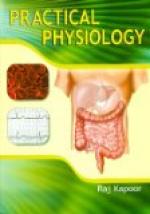170. Alcohol and Digestion. The influence of alcoholic drinks upon digestion is of the utmost importance. Alcohol is not, and cannot be regarded from a physiological point of view as a true food. The reception given to it by the stomach proves this very plainly. It is obviously an unwelcome intruder. It cannot, like proper foods, be transformed into any element or component of the human body, but passes on, innutritious and for the most part unappropriated. Taken even into the mouth, by any person not hardened to its use, its effect is so pungent and burning as at once to demand its rejection. But if allowed to pass into the stomach, that organ immediately rebels against its intrusion, and not unfrequently ejects it with indignant emphasis. The burning sensation it produces there, is only an appeal for water to dilute it.
The stomach meanwhile, in response to this fiery invitation, secretes from its myriad pores its juices and watery fluids, to protect itself as much as possible from the invading liquid. It does not digest alcoholic drinks; we might say it does not attempt to, because they are not material suitable for digestion, and also because no organ can perform its normal work while smarting under an unnatural irritation.
Even if the stomach does not at once eject the poison, it refuses to adopt it as food, for it does not pass along with the other food material, as chyme, into the intestines, but is seized by the absorbents, borne into the veins, which convey it to the heart, whence the pulmonary artery conveys it to the lungs, where its presence is announced in the breath. But wherever alcohol is carried in the tissues, it is always an irritant, every organ in turn endeavoring to rid itself of the noxious material.
171. Effect of Alcoholic Liquor upon the Stomach. The methods by which intoxicating drinks impair and often ruin digestion are various. We know that a piece of animal food, as beef, if soaked in alcohol for a few hours, becomes hard and tough, the fibers having been compacted together because of the abstraction of their moisture by the alcohol, which has a marvelous affinity for water. In the same way alcohol hardens and toughens animal food in the stomach, condensing its fibers, and rendering it indigestible, thus preventing the healthful nutrition of the body. So, if alcohol be added to the clear, liquid white of an egg, it is instantly coagulated and transformed into hard albumen. As a result of this hardening action, animal food in contact with alcoholic liquids in the stomach remains undigested, and must either be detained there so long as to become a source of gastric disturbance, or else be allowed to pass undigested through the pyloric gate, and then may become a cause of serious intestinal disturbance.[27]




